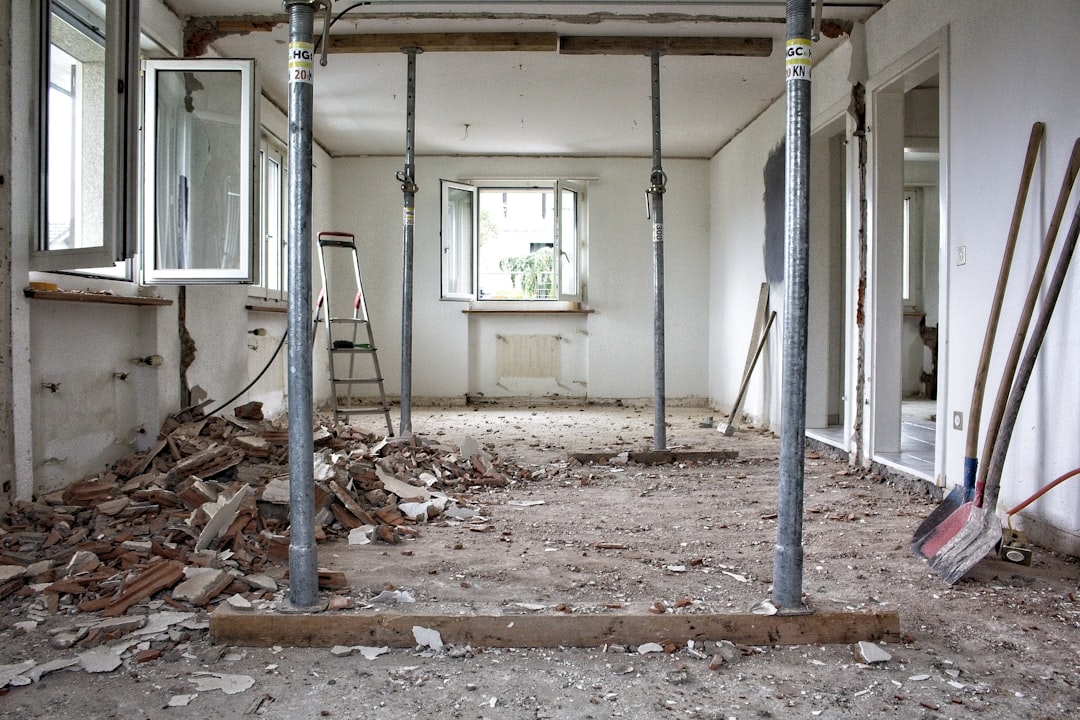
The Pros and Cons of Buying a Fixer-Upper in Residential Real Estate
Are you considering entering the real estate game? One option that often catches the eye of aspiring homeowners and investors alike is purchasing a fixer-upper in the residential sector. While the idea of renovating a property to make it your own or sell it for a profit can be appealing, there are several factors to consider before taking the leap into this segment of the housing market.
Pros of Investing in a Fixer-Upper
1. Opportunity for Equity Growth
One of the main advantages of buying a fixer-upper is the potential for significant equity growth. By purchasing a property below market value and making strategic improvements, you can increase its overall worth, allowing you to build equity faster than if you were to buy a turnkey home.
2. Customization and Personalization
Buying a fixer-upper gives you the opportunity to transform the space into your dream home. From selecting the finishes and fixtures to designing the layout to suit your needs, the customization options are endless, allowing you to create a personalized living space that reflects your style and preferences.
3. Potential Cost Savings
Fixer-uppers are often priced lower than move-in ready homes due to their condition. This provides buyers with the chance to negotiate a better deal and potentially save money on the purchase price, giving you more room in your budget for renovations and upgrades.
4. Experience and Learning Opportunities
For those looking to gain hands-on experience in real estate investing or home renovation, buying a fixer-upper can be an invaluable learning opportunity. From managing contractors to overseeing construction projects, the process can provide valuable insights that can benefit you in future real estate endeavors.
5. Investment Potential
Fixer-uppers can also be a lucrative investment opportunity. In addition to the potential for equity growth, these properties can be flipped for a profit or used as rental properties to generate passive income. Understanding the housing market analysis and real estate pricing trends is crucial for maximizing your returns in this sector.
6. Entry into the Luxury Market
Buying a fixer-upper in an upscale neighborhood can be a gateway to the luxury real estate market. With the right renovations and upgrades, you can transform a dated property into a high-end residence, allowing you to tap into the luxury market and cater to discerning buyers seeking premium amenities and finishes.
Cons of Investing in a Fixer-Upper
1. Renovation Costs and Time
One of the main drawbacks of buying a fixer-upper is the potential for higher-than-expected renovation costs and time-consuming projects. From structural repairs to cosmetic upgrades, unforeseen issues can arise during the renovation process, leading to budget overruns and delays in completing the project.
2. Financing Challenges
Securing financing for a fixer-upper can be more challenging than for a move-in ready home. Lenders may require additional documentation and inspections, and financing options such as renovation loans or construction loans often come with stricter requirements and higher interest rates, impacting your overall affordability.
3. Uncertain Resale Value
When investing in a fixer-upper, predicting the resale value of the property post-renovation can be challenging. Fluctuations in the housing market and rental market trends can impact the demand and pricing of renovated homes, potentially affecting your return on investment.
4. Emotional Stress and Decision-Making
The renovation process of a fixer-upper can be emotionally taxing, especially for first-time investors or homeowners. Making design decisions, managing contractors, and dealing with unexpected challenges can lead to stress and uncertainty, requiring strong decision-making skills and patience to navigate successfully.
5. Potential for Over-Improvement
There is a risk of over-improving a fixer-upper, where the cost of renovations exceeds the market value of the property. Investing in high-end upgrades or personalized features that do not align with the neighborhood's pricing trends can limit your potential for a profitable resale or rental income.
6. Regulatory and Permit Issues
Renovating a fixer-upper requires compliance with building codes and obtaining necessary permits from local authorities. Delays in securing permits or facing regulatory challenges can impede the renovation timeline and add to the overall costs, requiring meticulous planning and adherence to regulations.
Is a Fixer-Upper Right for You?
Before diving into the world of fixer-uppers in residential real estate, it's essential to conduct thorough research and evaluate your goals, budget, and risk tolerance. Understanding the housing market analysis, real estate pricing trends, rental market trends, and luxury market insights can provide valuable insights to make an informed decision.
While the journey of purchasing and renovating a fixer-upper may have its challenges, the potential rewards in equity growth, customization opportunities, and investment potential can make it a worthwhile venture for those willing to put in the time and effort. By weighing the pros and cons carefully and seeking advice from real estate professionals, you can navigate the fixer-upper market with confidence and turn a diamond in the rough into a valuable asset in your real estate portfolio.
